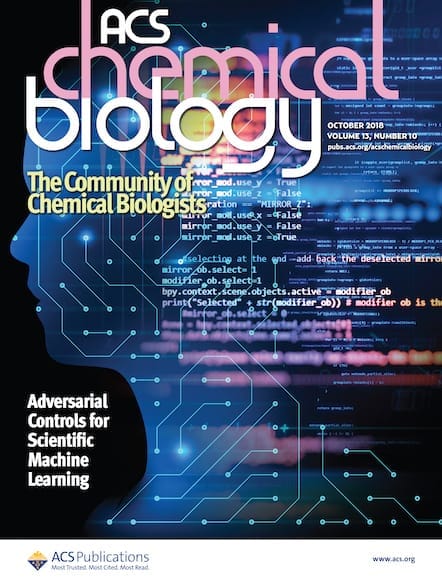Nashville, Tennessee, also known as Music City, is home to Vanderbilt University and musically connected ACS Chemical Neuroscience Editor-in-Chief Craig Lindsley, Ph.D. ACS Axial caught up with Lindsley at his two labs, one on campus and one off, to find out what projects he is currently working on and which musicians he’s recently spotted around […]

Nashville, Tennessee, also known as Music City, is home to Vanderbilt University and musically connected ACS Chemical Neuroscience Editor-in-Chief Craig Lindsley, Ph.D. ACS Axial caught up with Lindsley at his two labs, one on campus and one off, to find out what projects he is currently working on and which musicians he’s recently spotted around town.

By day Lindsley is a co-Director at the Vanderbilt Center for Neuroscience Drug Discovery, where he serves as the Director of Medicinal Chemistry and Drug Metabolomics and Pharmokinetics. He is also a professor of pharmacology and chemistry at Vanderbilt University. His focus is on research that expands on possible treatments for diseases that most in big pharma have already written off—schizophrenia, autism, Parkinson’s, Alzheimer’s, and rare diseases like fibrodysplasia ossificans progressiva (FOP).
At Lindsley’s on-campus lab, researchers focus on making tool compounds to publish and validate novel targets. It is home to six graduate students and two postdocs. Research from the lab has been published in ACS Chemical Biology, ACS Chemical Neuroscience, ACS Medicinal Chemistry Letters, Biochemistry, and the Journal of Medicinal Chemistry.

However Lindsley is most excited about his laboratory at the Cool Springs Life Sciences Center, a 20-minute drive from Vanderbilt’s main campus.
Built to plans that Lindsley personally oversaw only 5 years ago, the lab is located in an industrial park and houses a variety of lab equipment more likely seen at biotech companies than in academia. This off-campus lab is the staff-scientist arm of the Vanderbilt Center for Neuroscience Drug Discovery, employing roughly 40 staff scientists. Here, Lindsley and team develop patented compounds for licensing. And they have been quite successful.
Results from recent research led to several patents being licensed to large companies like Johnson & Johnson, AstraZeneca, La Jolla Pharmaceutical Company, Seaside Therapeutics, Karuna Pharmaceuticals, and Ono. The patents in turn have paid for new research, and have helped to fund the general expenses that come from operating a 15,000-square-foot medicinal chemistry and drug metabolism and pharmacokinetics lab in this space.

On the drive to the Cool Springs lab, Lindsley spoke about his love for Nashville, his family of seven, and, per this writer’s request, some of the musicians he sees when hanging out downtown—he mentions having spotted Robert Plant and Alison Krauss, Jack White, and many others who have made their homes in Tennessee.
An avid Kiss fan, Lindsley has photos of himself with Gene Simmons covering the walls of his office. Twenty years ago, Lindsley met Simmons, Kiss’ Israeli-born rock-bassist, at the first Kiss convention tour in Burbank, California. Now, he sees Simmons before shows when Kiss plays in Nashville.

Over the years, Lindsley has collaborated with other celebrities for causes including the Michael J. Fox Foundation for Parkinson’s research, where he received initial funding for mapping out the mGlu4 PAM portfolio his group licensed to BristolMyers Squibb, and for which they received three years of collaborative sponsored research.
In the evenings, Lindsley is a devoted father of five, making time for family, dinner, and homework before he does a final email check or begins to write an ACS Chemical Neuroscience editorial. Be sure to view our illustrated version of Lindsley’s lab for more interesting tidbits, and look out for subsequent articles in our new ACS Axial In the Lab series.
5 Most Recent Articles by the Craig Lindsley Research Group
- Oct 1, 2015 – Research relating to modulators of mGlu1 receptors of therapeutic potential for treating schizophrenia
- May 20, 2015 – Development of a compound for prospective treatment of schizophrenia via a new molecular mechanism
- Dec 2, 2014 – Research into a potential new compound for curing Parkinson’s Disease
- Nov 19, 2014 – Novel scaffold to target various forms of ubiquitous enzyme
- August 28, 2014 – Elucidation of the genetic differences underlying schizophrenia
